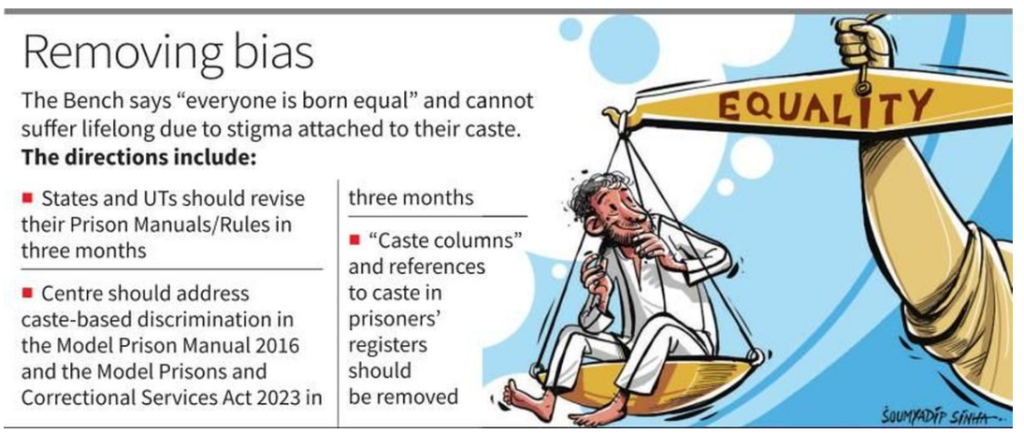On ‘casteist’ provisions in prison manuals
(Source – The Hindu, International Edition – Page No. – 10)
| Topic: GS2 – Governance |
| Context |
|

Colonial Legacy in Prison Manuals
- The court noted that prison manuals continued to reinforce colonial stereotypes, such as labelling certain communities as “habitual offenders.”
- These stereotypes originated from colonial laws like the Criminal Tribes Act, 1871, which stigmatised marginalised communities.
Fundamental Rights Violation
- The court ruled that using caste as a basis for segregation and labour division in prisons violated Article 14 of the Constitution, which guarantees equality before the law.
- Assigning cleaning duties to marginalised castes while reserving cooking for higher castes was considered direct discrimination under Article 15(1).
- These practices were also seen as perpetuating untouchability, prohibited by Article 17, and restricting prisoners’ right to dignity and reformation.
Court Directions and Reforms
- The Supreme Court directed all States and Union Territories to amend their prison manuals within three months to eliminate such discriminatory practices.
- It also ordered reforms to the Union government’s Model Prison Manual, 2016, and the Model Prisons and Correctional Services Act, 2023, to address similar issues.
- District legal services authorities and boards of visitors were instructed to ensure compliance through regular inspections.
| Practice Question: Discuss how caste-based practices in prison labour violate constitutional provisions. What measures can be taken to ensure equality and dignity for all prisoners? (150 Words /10 marks) |
